The Famine Crisis in Gaza
Food aid from 'al-Takiyah' is not sufficient to alleviate the hunger of the displaced and the poor

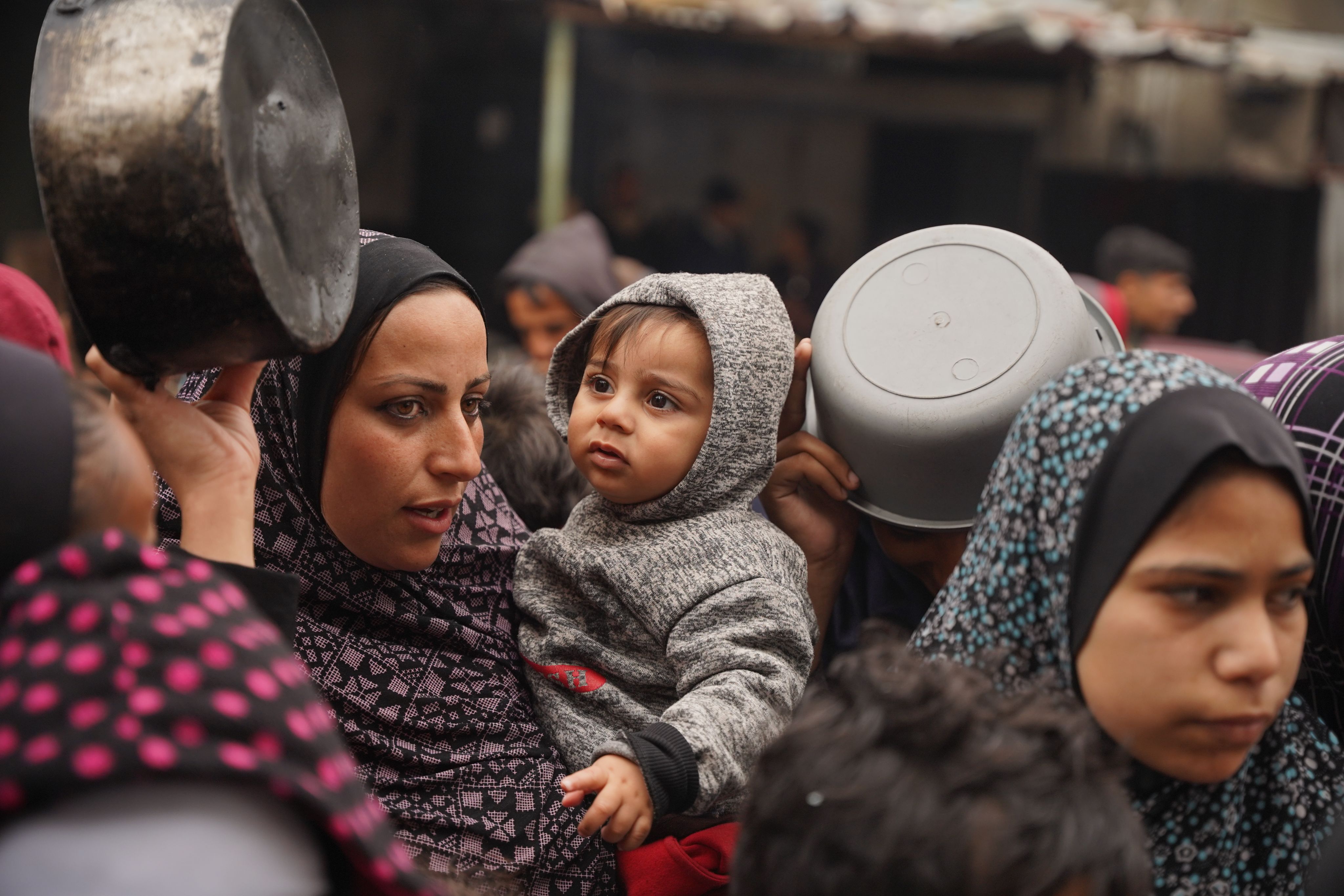
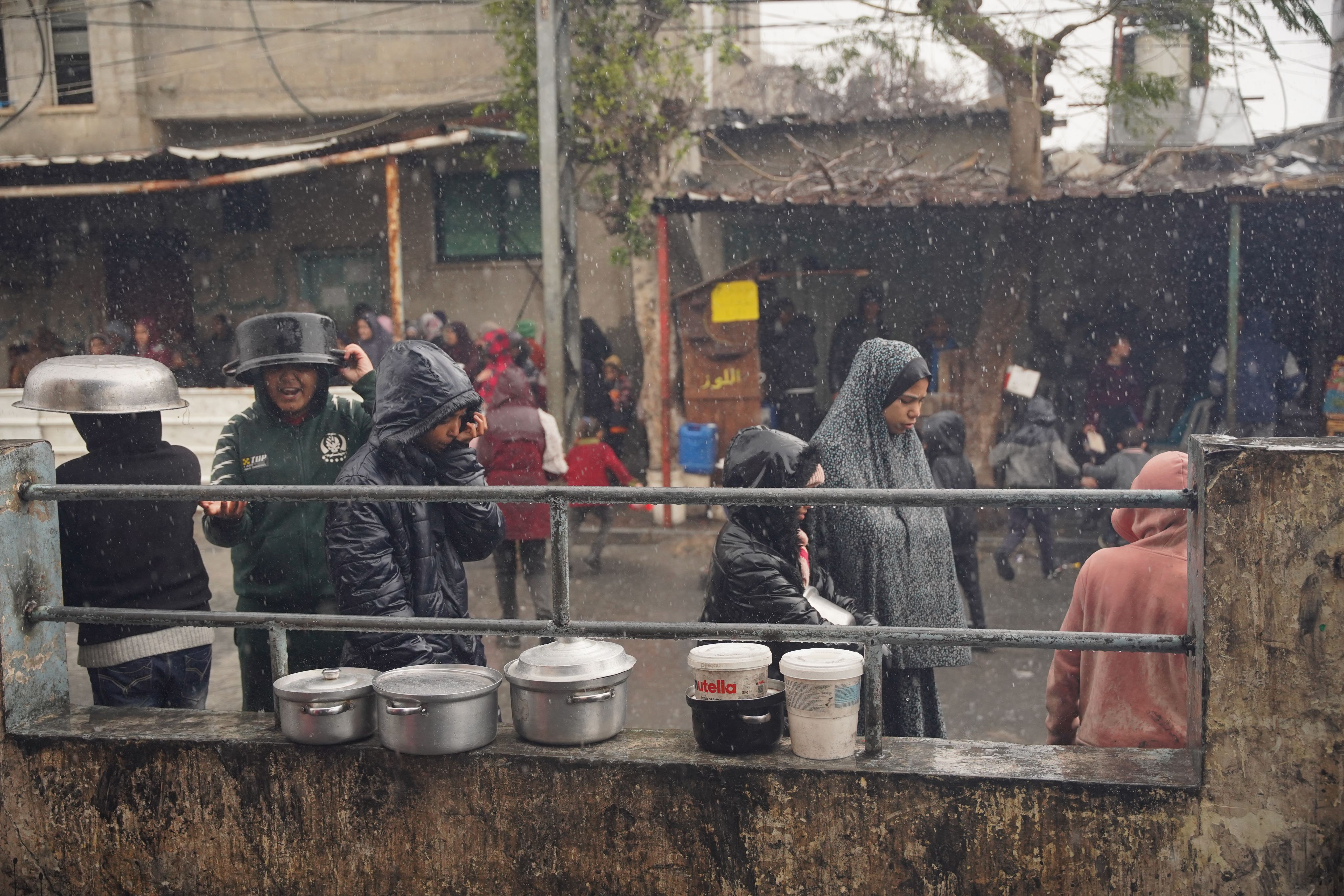
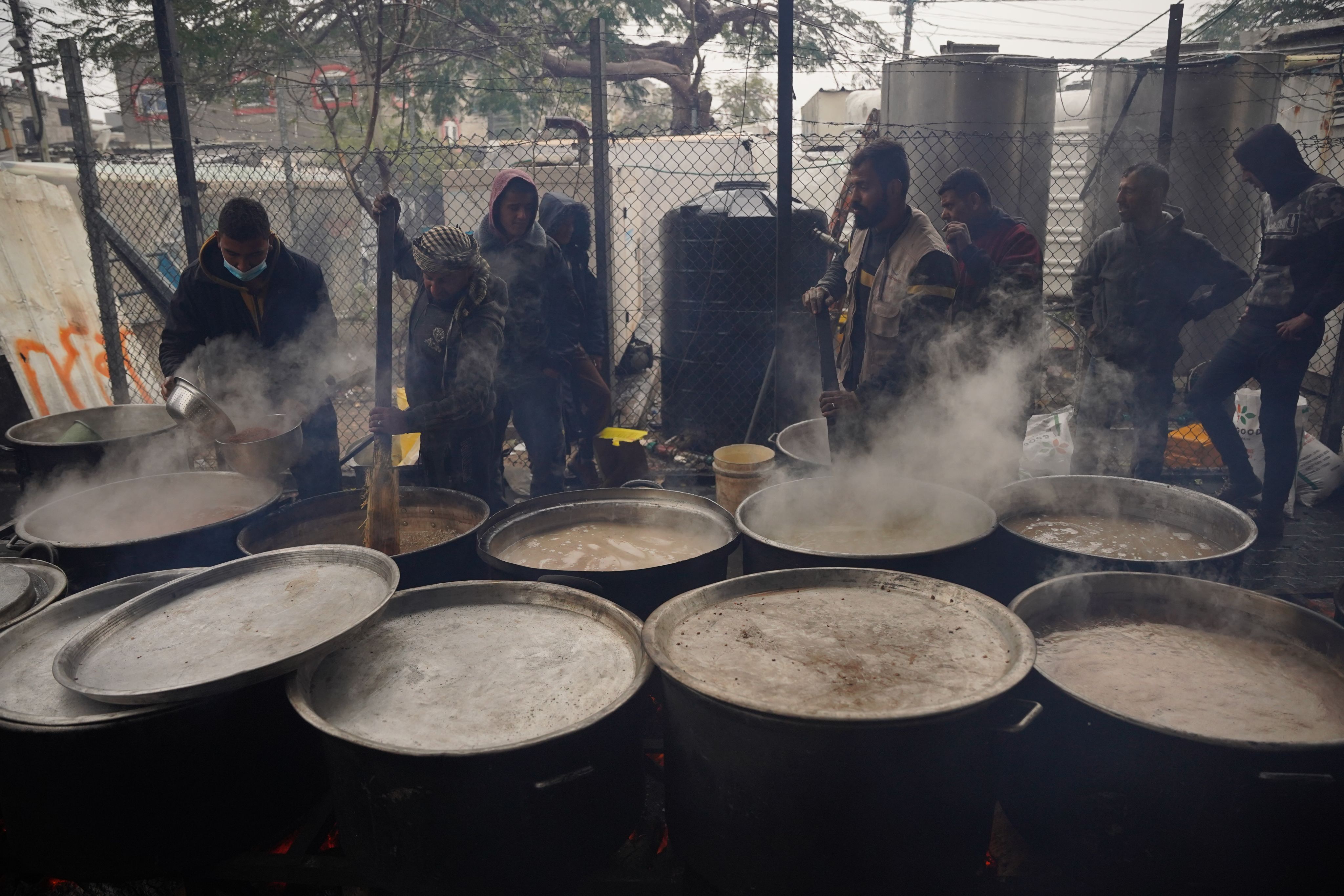
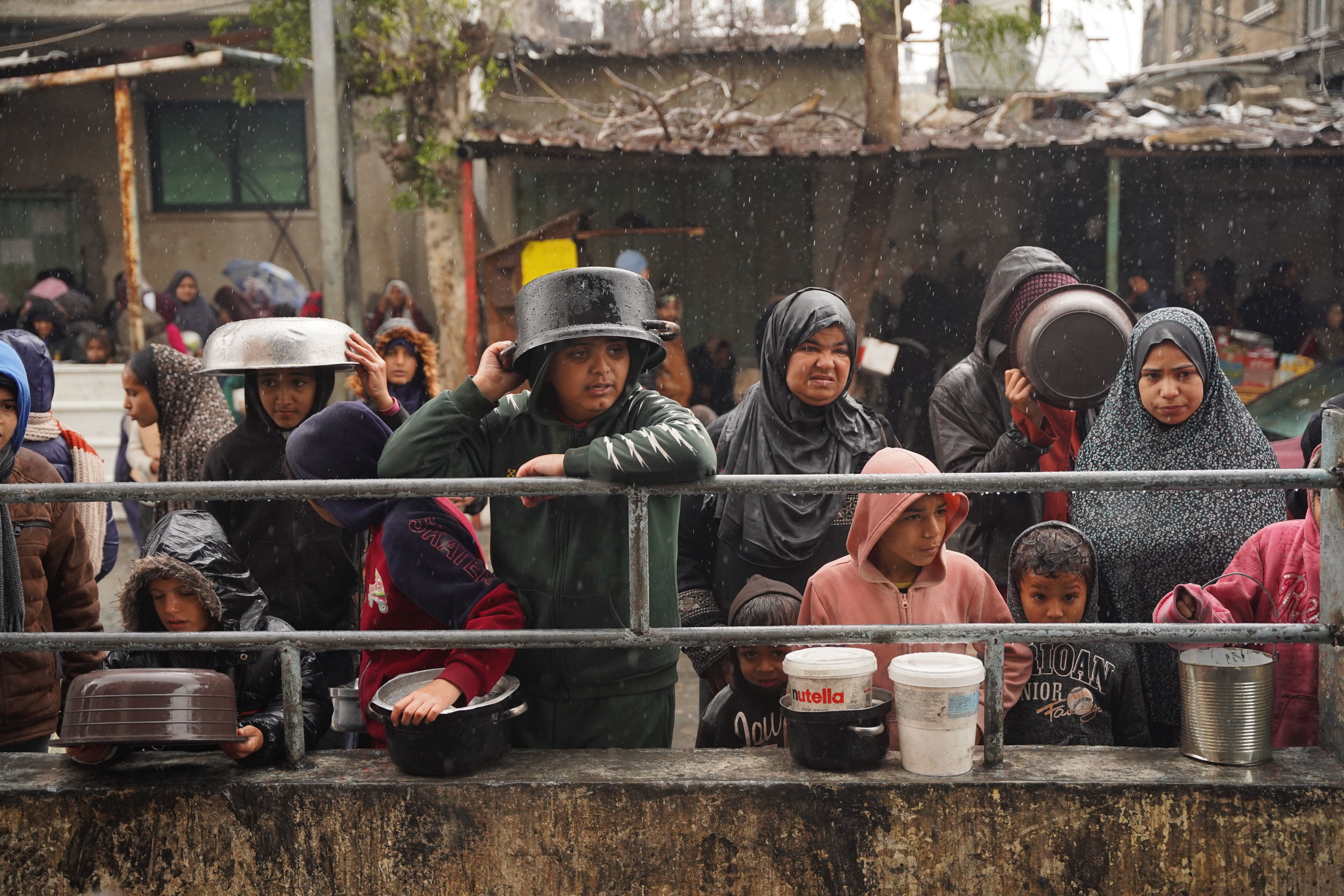
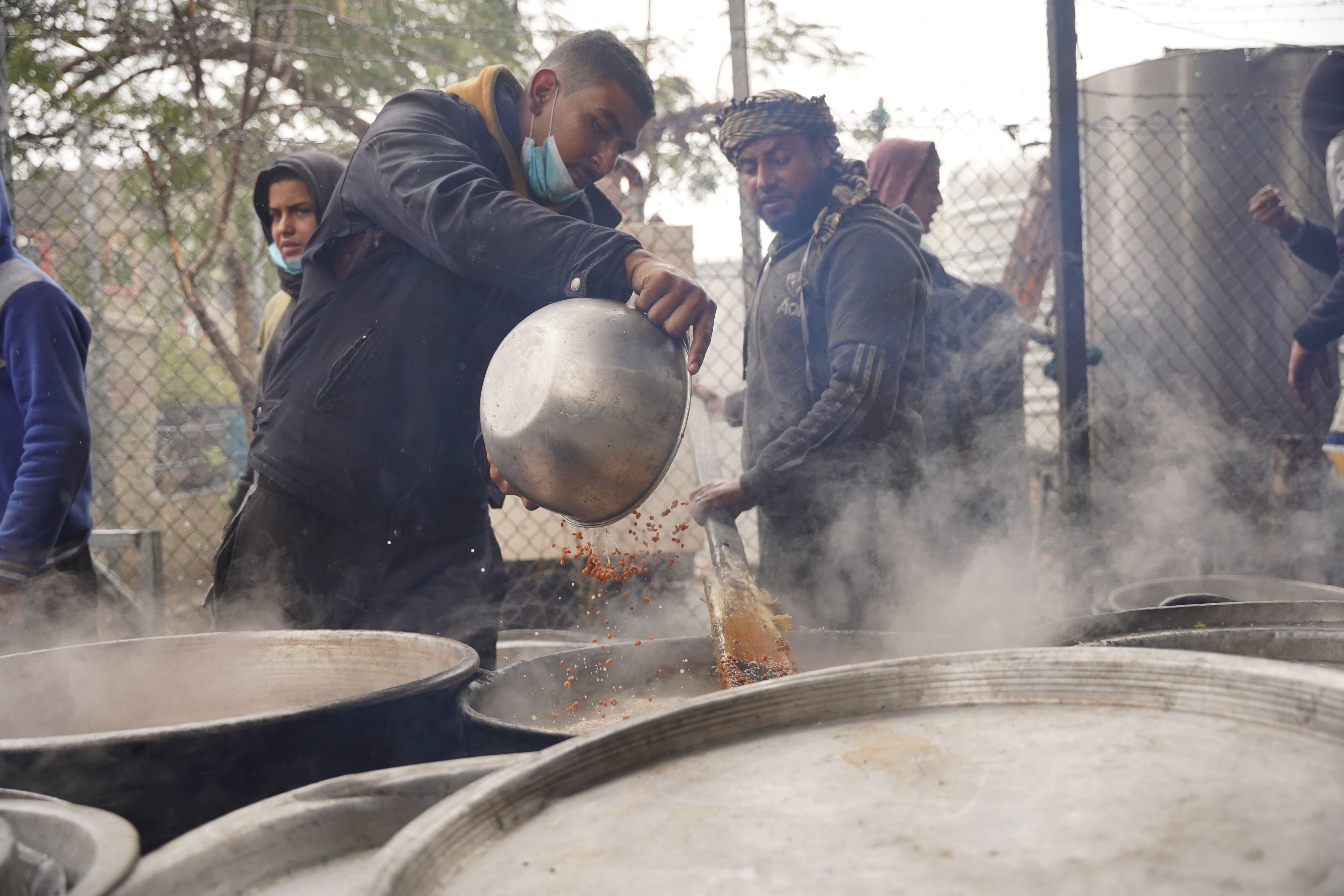
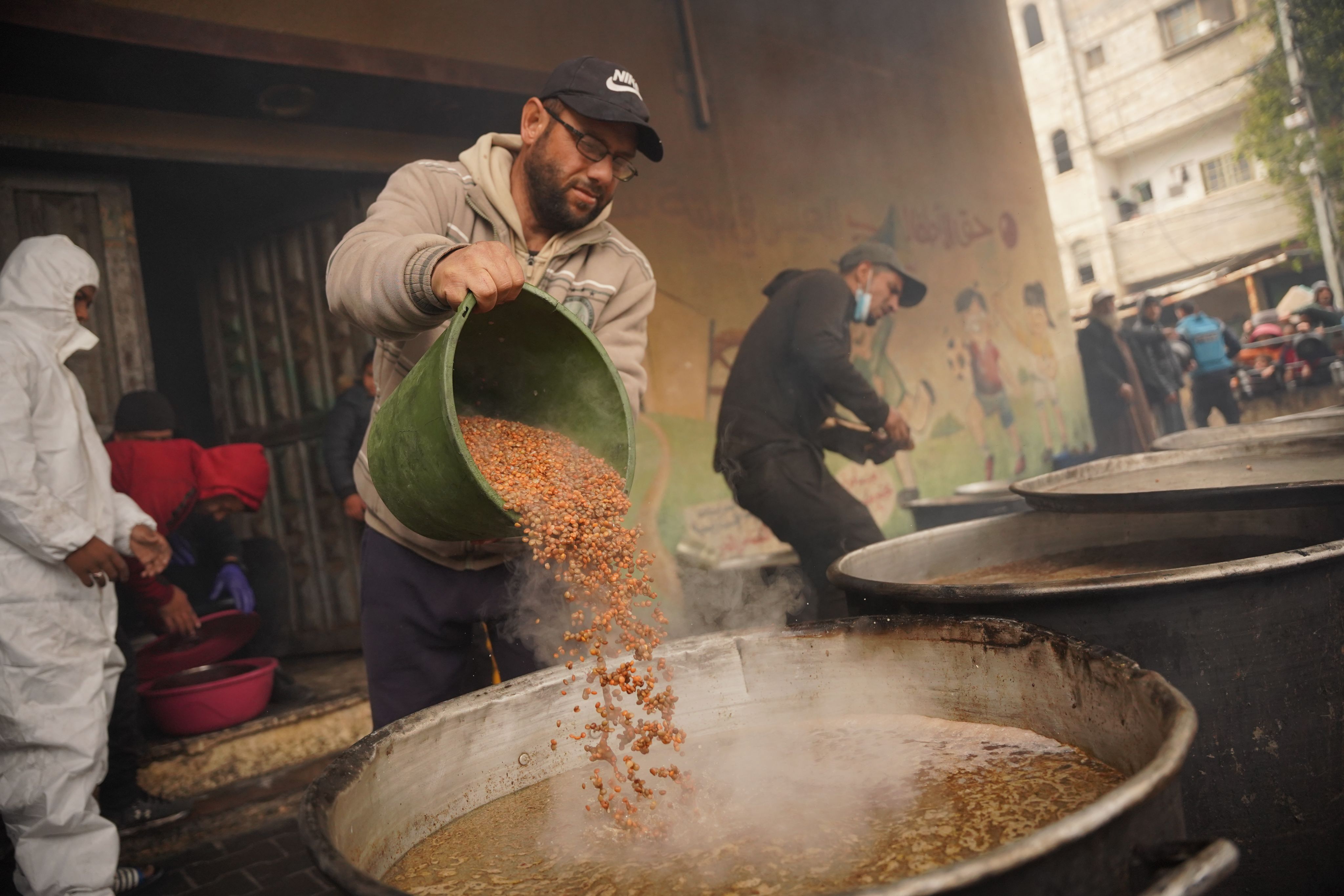
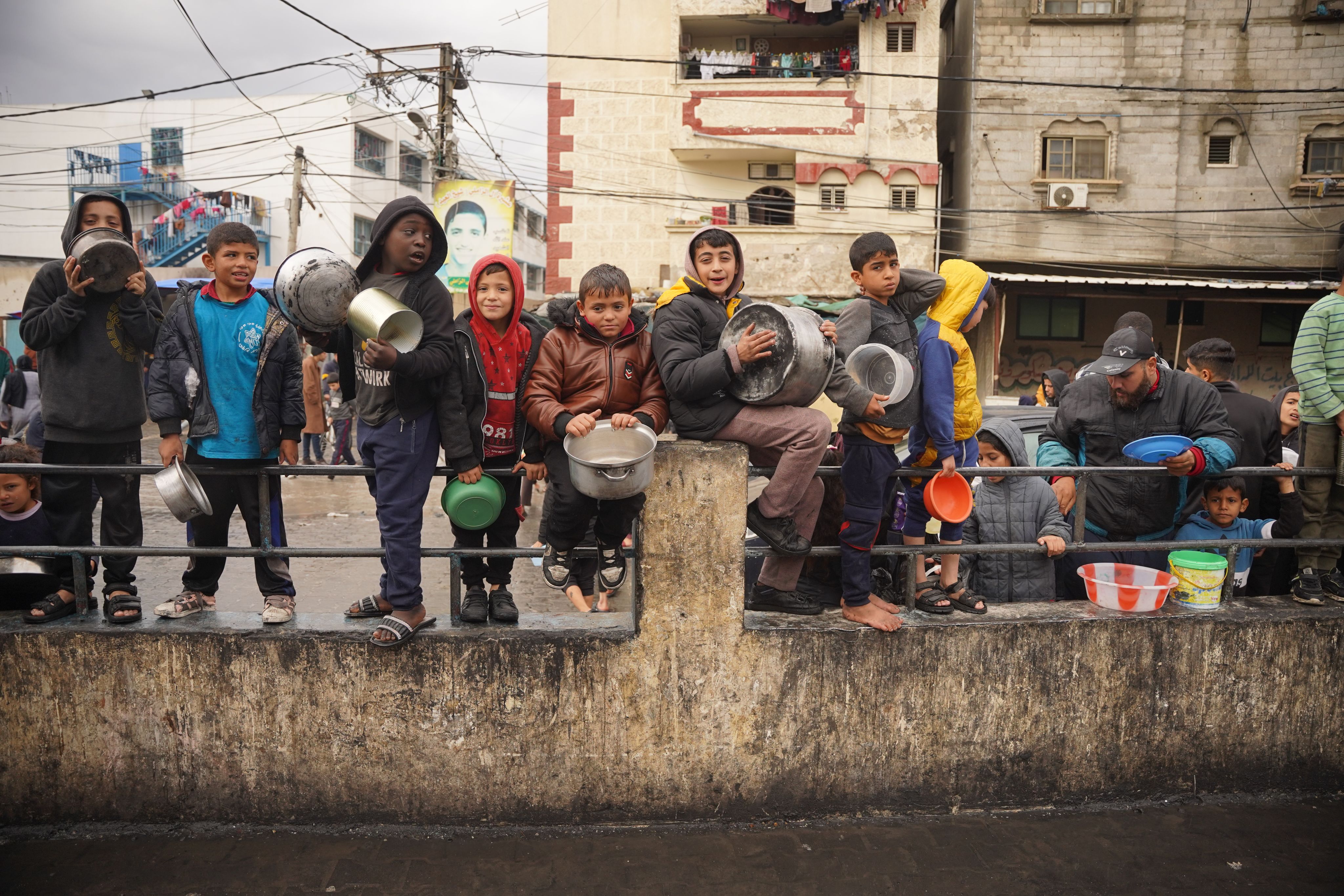
Sandra Al-Qassas (32 years old) stands daily for long hours amidst food queues, searching for what can feed her family, with one hand carrying her child and the other gesturing slightly among dozens of waiting, hungry individuals in the Gaza Strip, which suffers from a severe shortage of food and life necessities.
Thousands of women, like Sandra, are struggling to obtain a meal, as everyone fled from northern Gaza to its south, specifically to Rafah, after surviving the Israeli airstrikes that targeted their homes and destroyed many of them, only to find themselves in a daily battle for survival.
Sandra's family consists of 10 members, and to feed them enough to satisfy their hunger, she must stand in several queues. Firstly, she waits in line for bread, spending six hours in front of a bakery to get a piece of bread. Then she heads to the charity kitchen, spending more hours in line to get a cooked meal.
The famine is 'inevitable
Charitable food initiatives are referred to as "Takiya," primarily aimed at providing food support to the impoverished. With the exacerbation of the significant displacement, such initiatives have spread across southern Gaza to provide food for the displaced. Among these initiatives is "Takiya Al-Rahma," where Sandra awaits her share of food.
Finally, Sandra succeeded in obtaining food, and we returned with her to her tent, a simple tent devoid of almost everything. Sandra describes the tent, saying, "The tent consists of nylon and pieces of wood only for shelter, but it does not protect us from the cold weather or the rain.
Not all members of her family were in the tent, only her husband and six of her children. Sandra mentions that she sent her daughters to the bakery to fetch bread, as the single loaf she previously obtained was not enough.
Obtaining a loaf of bread today is not an easy task at all in the southern part of the Gaza Strip. Flour is scarce, and when available, its prices are high. Some people have even resorted to grinding animal feed to make bread.
The Gaza Strip is facing an "inevitable famine" as a result of the decision by the United States and several European countries to halt funding for the United Nations Relief and Works Agency for Palestinian Refugees (UNRWA). This decision comes after Israeli accusations that 12 agency employees participated in a Hamas attack on October 7th of last year.
According to Michael Frick, the United Nations Special Rapporteur on the right to food, this decision constitutes a "collective punishment for more than 2.2 million Palestinians," confirming that "famine was imminent" and is now "inevitable.
"We are dying"
The search for food has become a fundamental part of the lives of the displaced, evident from the anxiety etched on their faces, fearing the loss of even this hard-earned meal. Sandra explains that while life was challenging before October 7th, it was undoubtedly easier than it is today. She adds, 'We are going through tough days, moments that have changed everything in our lives.
Sandra laments her previous days as she now spends entire days waiting in lines: lines for bread, for food, for clean water, for saline water, and even for clinics. Sandra says, "Even if you want to buy a few falafel pieces, it means waiting in a long queue to get them. We try daily to meet our children's basic needs, but they long for much more than we can provide due to the exorbitant prices here.
Sandra lost her job due to the war, which entered its fourth month, as she worked at the Turkish Friendship Hospital in the cleaning department. On her last day of work, she received news of her brother's death (26 years old), and during her displacement journey, she received news of the death of her elder brother.
Sandra, like many others, is part of families and communities of over 26,000 people who were killed during this war. They carry their pains and try to continue their lives, waiting for the declaration of the end of the war to return to their homes. "Let's set up a tent even in place of our demolished homes; what matters is returning," says Sandra. "We are waiting for the war to end as we are on the verge of death.
We concluded our conversation with Sandra as her two daughters entered the tent empty-handed, unable to obtain bread. Their mother tried to comfort them and offered them the food she had brought in a pot. Sandra says, "This is not just my story; it's the story of an entire camp. We all face the same conditions and sufferings."
Despite the sadness evident on her daughters' faces, Sandra's family still has it better than other families who may not be able to secure a meal from the food distribution centers. This is due to the depletion of cooked food available for distribution.
The food kitchen serves as a temporary solution in the face of the looming specter of famine
Khaled, the manager of Rahma Kitchen, believes that the most challenging situation is witnessing the faces of people in the queue when the food runs out. He says, 'It's a harsh feeling to see people leaving without food after distribution ends, knowing that there are hungry children waiting.
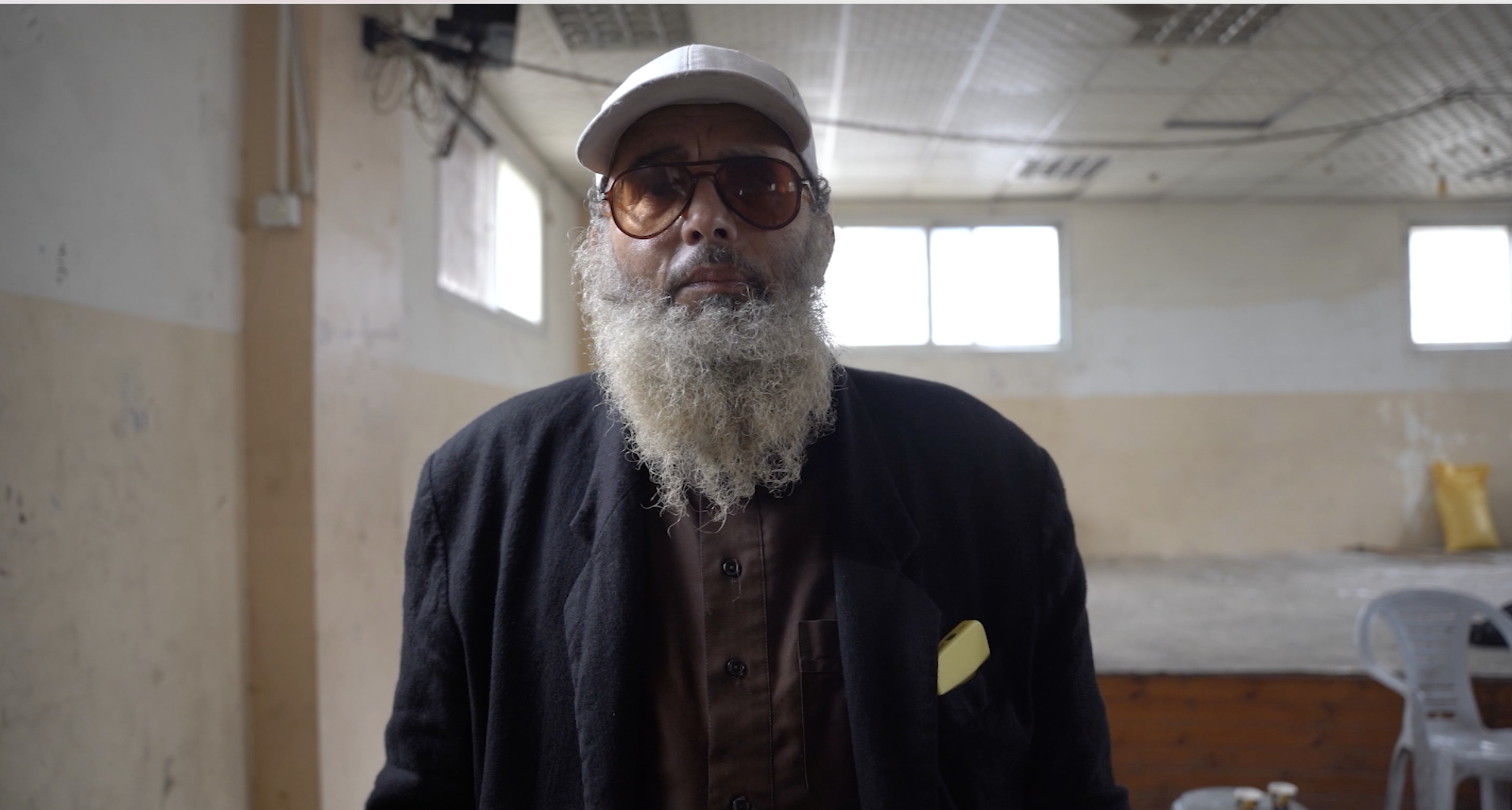
For Khaled, the challenges of this work include the shortage of large cooking pots. He says, "If we had more of those pots, we could cook more food and distribute it to more people."
Khaled understands the needs of the displaced people. He says, "The population of Rafah city used to be no more than 300,000 people, and today the population here has exceeded one million and 40,000 people. Everyone needs food and medicine."
Not only that, but Khaled has met many people whose money was confiscated at checkpoints during their displacement. They "arrived here with only their clothes and a lot of psychological burdens."
Through this initiative, which he started from the early days of displacement, Khaled seeks to alleviate the burden on the people of Gaza. He provides basic meals, amid complaints from many about the shortage of humanitarian aid. Aged 55, married, and a father of 14 children, Khaled manages three kitchens where a total of 70 pots are used for cooking. Food is distributed to tens of thousands of displaced people in shelters, schools, and camps. Summing up the kitchen's work style, Khaled says, "Wherever the displaced are, we are there."
The Siege
Before the war, around 3 out of every 4 people in the Gaza Strip relied on the United Nations for food assistance, according to Aref Hussein, the chief economists at the World Food Programme, in a statement to CNN. Following the October 7th events, Israel imposed a near-complete blockade on the Strip, and after lengthy negotiations, aid was allowed back in. However, the process is slow, with only about 150 trucks passing daily compared to around 500 trucks before the war.
But that's not all. Many parents spend their days without food to ensure their children get something to eat. And when food is available, prices soar, making it impossible to buy even for families once classified as middle class.
A United Nations report indicated that what is happening in Gaza represents the highest percentage of people facing severe levels of food insecurity ever recorded in any specific region or country.
